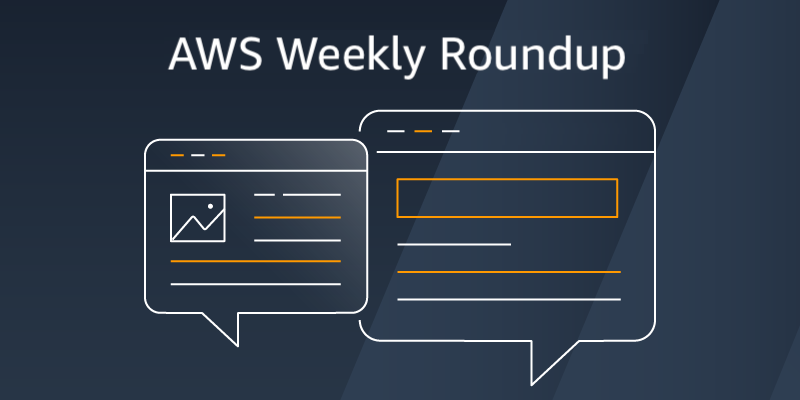AWS News Blog
New compute-optimized (C7i-flex) Amazon EC2 Flex instances
The vast majority of applications don’t run run the CPU flat-out at 100% utilization continuously. Take a web application, for instance. It typically fluctuates between periods of high and low demand, but hardly ever uses a server’s compute at full capacity. CPU utilization for many common workloads that customers run in the AWS Cloud today. […]
AWS Weekly Roundup: New capabilities in Amazon Bedrock, AWS Amplify Gen 2, Amazon RDS and more (May 13, 2024)
AWS Summit is in full swing around the world, with the most recent one being AWS Summit Singapore! Here is a sneak peek of the AWS staff and ASEAN community members at the Developer Lounge booth. It featured AWS Community speakers giving lightning talks on serverless, Amazon Elastic Kubernetes Service (Amazon EKS), security, generative AI, […]
A new generative engine and three voices are now generally available on Amazon Polly
With Amazon Polly, you can select various voice options, including neural, long-form, and generative voices, which deliver ground-breaking improvements in speech quality and produce human-like, highly expressive, and emotionally adept voices.
Build RAG and agent-based generative AI applications with new Amazon Titan Text Premier model, available in Amazon Bedrock
Titan Text Premier is the latest large language model (LLM) in the Amazon Titan family of models, further increasing your model choice within Amazon Bedrock.
Build generative AI applications with Amazon Bedrock Studio (preview)
Amazon Bedrock Studio accelerates the development of generative AI applications by providing a rapid prototyping environment with key Amazon Bedrock features, including Knowledge Bases, Agents, and Guardrails.
AWS Weekly Roundup: Amazon Q, Amazon QuickSight, AWS CodeArtifact, Amazon Bedrock, and more (May 6, 2024)
April has been packed with new releases! Last week continued that trend with many new releases supporting a variety of domains such as security, analytics, devops, and many more, as well as more exciting new capabilities within generative AI. If you missed the AWS Summit London 2024, you can now watch the sessions on demand, […]
Build RAG applications with MongoDB Atlas, now available in Knowledge Bases for Amazon Bedrock
Foundational models (FMs) are trained on large volumes of data and use billions of parameters. However, in order to answer customers’ questions related to domain-specific private data, they need to reference an authoritative knowledge base outside of the model’s training data sources. This is commonly achieved using a technique known as Retrieval Augmented Generation (RAG). […]
Stop the CNAME chain struggle: Simplified management with Route 53 Resolver DNS Firewall
Updated 2 May 2024: I removed the reference to Route53 Alias that was incorrectly referred as a chain Starting today, you can configure your DNS Firewall to automatically trust all domains in a resolution chain (such as aCNAMEor DNAMEchain). Let’s walk through this in nontechnical terms for those unfamiliar with DNS. Why use DNS Firewall? […]






